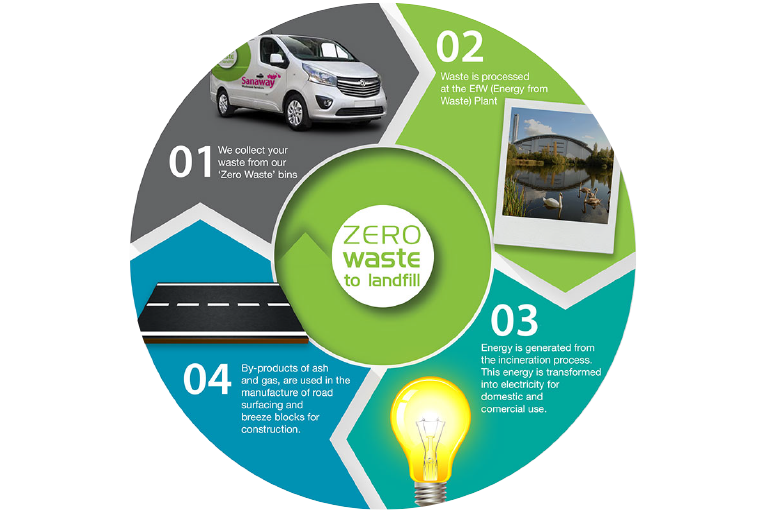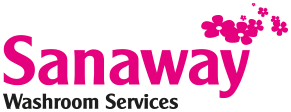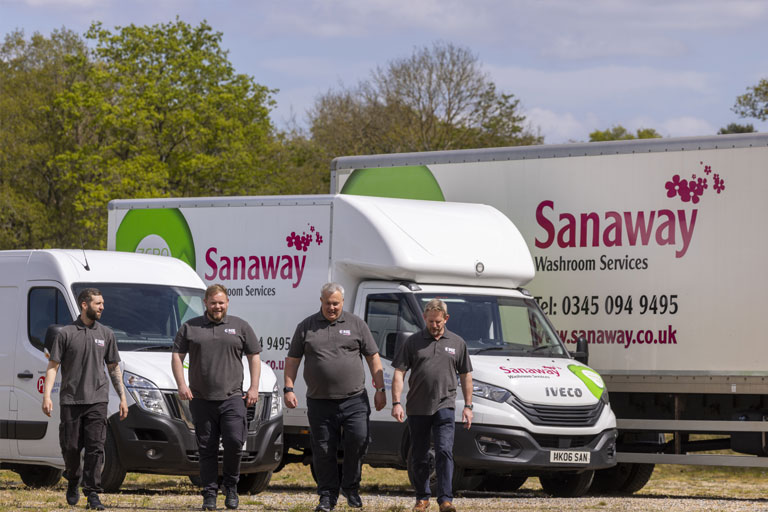Sanaway co-founder, Patrick Martin shares his tips to help businesses choose a washroom services provider that can contribute towards sustainability and ESG goals.
Washroom facilities are governed by three Acts that establish minimum compliance requirements for businesses.
Companies have a legal obligation to provide suitable and sufficient sanitary conveniences as stated in the Workplace (Health, Safety and Welfare) Regulations 1992, and stipulates that employers must ensure they provide suitable means for the disposal of sanitary waste in female or unisex facilities.1
Furthermore, the Water Industries Act 19912 and the Environmental Protection Act 19903 imposes a duty of care on businesses to ensure that sanitary waste is handled and disposed of safely and not flushed down the toilet. This act helps ensure adequate and accessible sanitary disposal bins are provided to create a more hygienic washroom environment, as well as preventing costly blockages, especially in older buildings with outdated plumbing.
There are common sustainability goals that many facilities managers may cite such as; reducing water consumption, minimising waste production, and using eco-friendly products, but businesses can go further by integrating goals like zero waste to landfill (ZWTL), health messaging, and optimised service frequencies into their ESG framework to enhance their washroom provision, and show environmental responsibility and care for employee wellbeing.

Choose a washroom service provider that aligns with your sustainability and ESG goals. This means clearly defining what sustainability means to your organisation, which elements are non-negotiable, and where there’s room for flexibility especially in the context of budget constraints.
Transparency and trust in your washroom provider is a key component of success that will mark the signs of an efficient, reliable and ‘sustainable’ relationship. Don’t be afraid to ask questions, and if you’re not happy with the detail, press for more or ask why the information is not forthcoming.
6 Questions Every Business Should Ask for Responsible Washroom Waste Management
- Does the zero waste to landfill service rely on incineration only, or incorporate Energy from Waste (EFW) as well to utilise by-products of incineration?
- Is the zero waste to landfill service fully auditable? This will evidence responsible waste disposal as well as provide a benefit for clients with ISO 14001 by helping to fulfil their continuous improvement requirement.
- Can you visit the EFW facility? This will reassure you how the process works from the moment your waste draws up to the gates and journeys through the process to the end.
- What steps are taken to minimise carbon footprint? For example, is least distance route planning utilised.
- Are bin sizes and service frequencies tailored to your needs? Smaller bins may require more frequent visits, raising costs and carbon footprint. A full audit ensures the right setup for efficiency and sustainability.
- Are products and consumables responsibly sourced, reusable, recyclable and kind to the environment?
A final word
Ask the supplier to provide you with direct contact to their existing clients who are happy to discuss their service experience. If they are unwilling to do so, you can make a considered choice to look for an alternative supplier with a more transparent approach.
For information about Sanaway’s Zero Waste to Landfill philosophy, click here.
1 – https://www.legislation.gov.uk/uksi/1992/3004/regulation/20
2 – https://www.legislation.gov.uk/ukpga/1991/56/contents?view=plain
3 – https://www.legislation.gov.uk/ukpga/1990/43/contents


